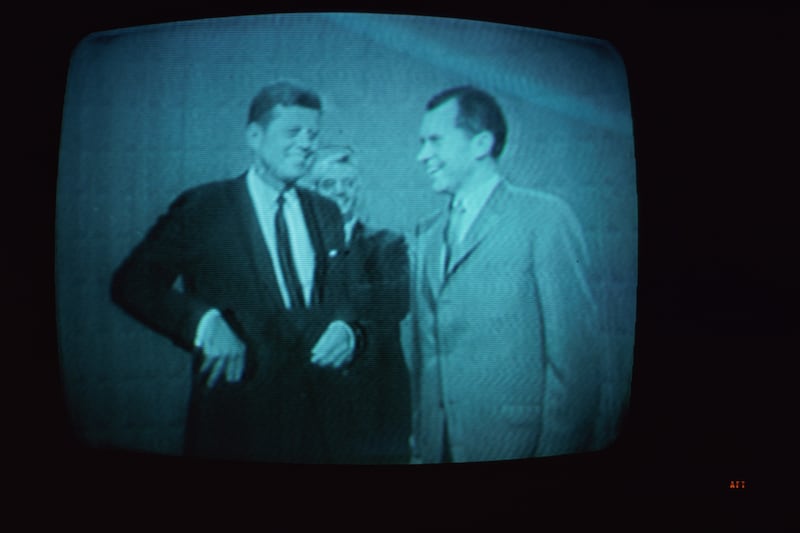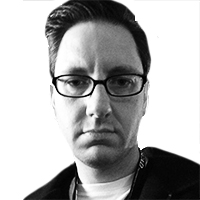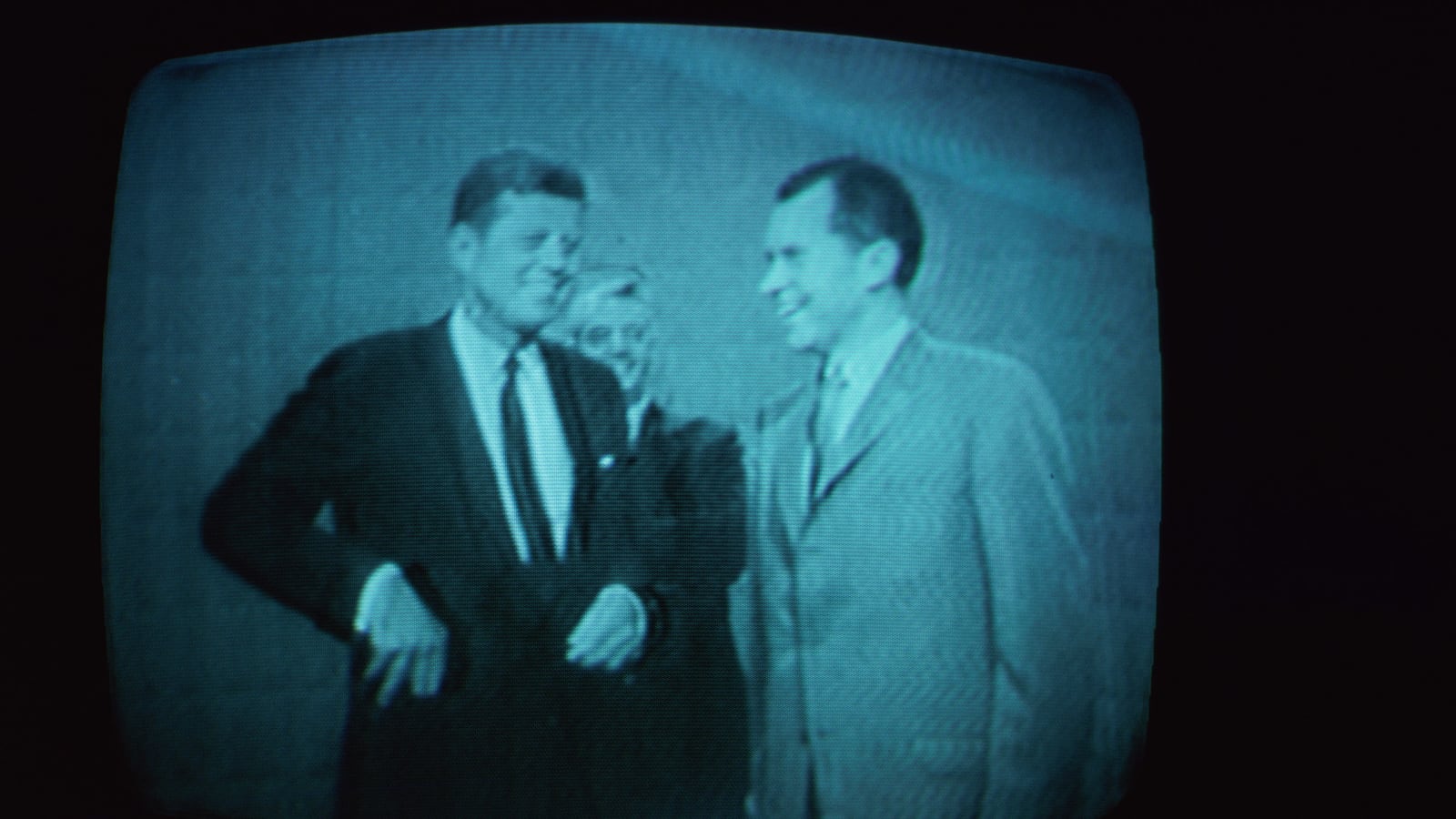On September 26, 1960, Richard Nixon arrived at the Chicago studio for his first televised presidential debate—the first ever televised presidential debate—exhausted from two solid weeks of campaigning. With a poll on August 30 giving Kennedy a one-point lead and another on September 14 giving Nixon a one-point lead, the race was effectively tied going into that first debate.

Nixon had spent three weeks in the hospital with a knee injury a month earlier, so he had some catching up to do on the campaign trail. Rather than rest after the flight into Chicago the night before, Nixon spoke at five rallies and didn’t get to the hotel until 1 a.m. On debate day, he spent the morning giving a speech to the Carpenters Union and the afternoon studying position papers. No time for napping.
Nixon shunned debate prep. He had been vice president of the United States for the last eight years, he was well versed on the things that mattered—the economy, the federal budget, world politics, national defense—and he could think on his feet. But he looked terrible; he was “white and pasty,” as one reporter noted, and gaunt from losing 10 pounds while recovering from knee surgery.
“Richard Nixon, for his part, looked like an ill-at-ease, unshaven, middle-aged fellow recovering from a serious illness,” Chris Matthews wrote in his 1996 book Kennedy and Nixon: The Rivalry that Shaped Postwar America. “Jack Kennedy, by contrast, was elegant in a dark, well-tailored suit that set off his healthy tan.”
For the 60 million people who watched the debate, the contrast of the candidates could not have been sharper.
“From a television image standpoint, Nixon couldn’t compete,” said Mark Herzog, one of the producers of The Sixties, a 10-part documentary series that begins Thursday on CNN. “Image says everything in that debate, and the image of Kennedy as assured, as presidential, comes across far more than Nixon even though Nixon had been vice president for eight years and Kennedy was relatively unknown.”
John Heilemann, a Washington political reporter who is launching “Bloomberg Politics” on TV with his Game Change and Double Down co-author Mark Halperin, appears as an interviewee in several episodes of The Sixties. Heilemann said it’s difficult to understate the power of the first televised debate in shaping Nixon’s image.
“Many people knew Richard Nixon was the vice president of the United States but had never seen his face,” Heilemann said. “For a lot of people, those debates were the first time they had laid eyes on Richard Nixon.”
In separate interviews with The Daily Beast, Heilemann and Herzog both talked about the fact that people who listened to the debate on the radio were more likely to think that Nixon had won but people who watched on TV thought that Kennedy had won. Journalist Robert MacNeil echoes those comments in Thursday’s kickoff episode of The Sixties, “Television Comes of Age.”
“For the people who would run every presidential campaign and every White House thereafter, the lesson they took from [the debate] was that television mattered a lot,” Heilemann said. “It changed the way that politics was practiced in very dramatic ways from that election forward.”
***
The Sixties is produced by Tom Hanks and Gary Goetzman (HBO’s John Adams and The Pacific) and documentary veteran Herzog. Hanks appears as a talking head in several episodes of the series. The “Television Comes of Age” episode covers an enormous amount of TV territory—the growing influence of broadcast news, the power of the medium to shape public opinion, the golden age of variety shows, and the first shifts away from stereotypical roles for women and minorities in scripted shows—without feeling rushed or overwhelming.
“The idea of The Sixties was always meant to be a documentary series looking back at great archival footage that had not been seen since the ’60s,” Herzog said. “There’s no narrator in any of the episodes. The voice of every one of the episodes are the moments from television news of the time.”
The CNN series will run on Thursdays through early August and covers everything from major strides in civil rights (“A Long March to Freedom,” June 26) to the giant leap for mankind (“The Space Race,” July 17) to the decade’s major cultural shifts (“Sex, Drugs and Rock N’ Roll,” August 7).
One of the strongest elements of the opening episode is the use fresh voices to break down the impact of TV in the ‘60s. I’m not sure if TV critics like The New Yorker’s Emily Nussbaum and Hitfix.com’s Alan Sepinwall were even old enough to watch scripted television in the 1960s, but their contributions are a highlight for Breaking Bad-generation viewers. And speaking of Breaking Bad, when show creator Vince Gilligan talks about the emotional honesty of The Andy Griffith Show, that grainy, black-and-white show seems almost ahead of its time.
***
Richard Nixon lost the presidential election in 1960, of course, but he would be back with a vengeance—and a brand new image—in 1968.
“One of the big lessons of 1960 was, you gotta look good in these debates, you can’t sweat, you can’t have a five o’clock shadow,” John Heilemann said. “The lesson of 1968 was that a not-particularly-attractive guy could be packaged and sold to the American people, and that would be a model that every campaign—Democratic and Republican—would try to follow in every successive presidential election from then forward.”
Shortly before the election, Nixon made a blink-and-you-missed it appearance on Rowan & Martin’s Laugh-In, an NBC variety show, and gave an unforgettable delivery of the show’s signature “sock it to me!” line.
“The political evolution of Nixon throughout those eight years is huge,” Mark Herzog said. “He also ran for governor of California in 1962 and lost. I think from an image standpoint, the fact that he went on Laugh-In as a presidential candidate and says those words—and so strangely, ‘Sock it to meee?’—he endeared himself to the nation.”
Of course, it did take the candidate five takes to get that endearing take. The rest were deemed too mean.
“I don’t know that ‘sock it to me’ got him elected,” Herzog said, “but he definitely learned what television could do for him as a candidate in those eight years.”






